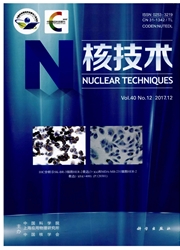

 中文摘要:
中文摘要:
应用早熟染色体凝集技术研究了γ-射线诱导人卵巢癌细胞G2-染色单体断裂畸变的剂量效应与畸变修复的时间效应。结果表明:G2-染色单体型断裂畸变(chromatid-type breaks)与辐射剂量呈线性关系;G2-等点染色单体型断裂畸变(iso-chromatid breaks)与辐射剂量呈线性平方关系。2Gy γ-射线诱导的G2染色单体断裂畸变随着孵育时间的延长发生了明显的连接即修复,对G2-染色单体型断裂畸变,有近65%的断裂在辐射后24h内得以修复;对G2-等点染色单体型断裂,在辐射后24h内只有20%左右得以修复,两类断裂畸变的修复主要发生在辐射后2h内,在辐射后12-24h内染色体断裂量趋于稳定,表明修复基本完成。
 英文摘要:
英文摘要:
The premature chromosome condensation technique was used to estimate the dosage effect on the G2-chromosome breaks in HO8910 after exposure to γ-rays, and to investigate the time effect on the rejoining of the G2-chromosome breaks. The results show that the number of G2 chromatid-type breaks linearly increased with doses and the number of G2 iso-chromatid breaks increased with dose in a linear-square manner. With the prolongation of culture time, G2 chromatid-type breaks obviously got repaired, and almost 65% chromatid-type breaks got repaired in the early 24 hour post-irradiation, whereas only about 20% iso-chromatid breaks got repaired during the same time. Furthermore, the rejoining of the two types of chromatid breaks occurred mostly in 2 hours after irradiation and from 12 to 24 hours after irradiation, the number of chromatid breaks was found to get stabilized basically, which indicates that the repairing process is over in the early 24 hours of post-irradiation.
 同期刊论文项目
同期刊论文项目
 同项目期刊论文
同项目期刊论文
 期刊信息
期刊信息
